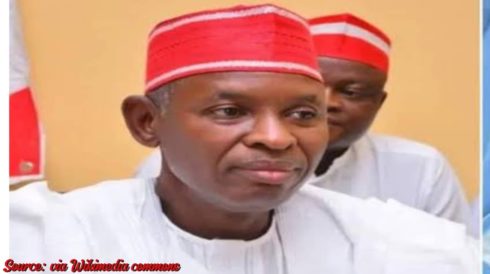Governor Abba Kabir Yusuf has officially dissolved all caretaker committee chairpersons across the state. The governor made the announcement during a press briefing at the Government House, Kano, citing the need for improved transparency, accountability, and inclusiveness at the grassroots level.
This move comes as part of the governor’s broader agenda to reform local administrative systems and ensure efficient service delivery. The dissolution has been met with mixed reactions from various political quarters, but the governor remains resolute in his commitment to fostering an improved governance framework.
Governor Abba Kabir Yusuf: The Motivation Behind the Decision
Governor Abba Kabir Yusuf emphasized that the dissolution was necessary to restore public trust and confidence in local leadership. He noted that the caretaker committees, appointed by the previous administration, had failed to meet the expectations of the people, with numerous complaints arising from mismanagement and lack of representation.
Furthermore, the governor highlighted that these caretaker committees were never meant to be permanent fixtures, but temporary solutions until elections could be conducted. The dissolution marks the first step toward holding democratic elections for local government leadership, which the administration plans to fast-track.
Immediate Plans for Replacement
Following the dissolution, Governor Abba Kabir Yusuf assured Kano residents that interim measures will be put in place to avoid any disruption in local government activities. He stated that new caretaker committees will be constituted shortly, but unlike the previous appointments, the selection process will be more transparent and merit-based.
Additionally, the governor announced plans to hold local government elections within the next six months, with a commitment to ensuring free, fair, and credible polls. The upcoming elections are expected to bring a new era of participatory governance to Kano State, allowing citizens to elect leaders who truly represent their interests.
Reactions From Political Stakeholders
The decision to dissolve the caretaker committees has generated a wave of reactions from various political parties and stakeholders. While some opposition figures criticized the move as a political maneuver to consolidate power, many civil society organizations and community leaders have expressed support, citing it as a necessary step toward democratic governance.
The People’s Democratic Party (PDP), to which Governor Abba Kabir Yusuf belongs, praised the decision as a bold and timely reform, while opposition parties like the All Progressives Congress (APC) questioned the timing and motive behind the dissolution. However, both sides agree on the need for improved governance at the local level.
Impact on Local Governance and Service Delivery
The dissolution is expected to bring immediate changes in how local governments operate across Kano State. Many residents have complained about the inefficiency of the caretaker committees, citing poor infrastructure, lack of public services, and unresponsive leadership. By replacing these chairpersons, the administration aims to create a more responsive and effective local governance system.
Governor Abba Yusuf’s administration has already outlined plans to revamp key sectors such as education, healthcare, and rural development, which will be directly impacted by this decision. The hope is that new leadership at the grassroots level will accelerate the implementation of these reforms.
Long-Term Implications for Democracy in Kano State
Governor Abba Kabir Yusuf’s decision has far-reaching implications for democracy in Kano State. By dissolving caretaker committees and preparing for local government elections, the state government is reinforcing the importance of electoral legitimacy and accountability. This move is widely seen as a positive step towards strengthening democratic institutions.
The upcoming elections will not only determine the future of local governance but also set a precedent for other states in Nigeria, where caretaker committees have often been criticized for undermining democratic processes. Kano State could become a model for other states looking to transition from appointed to elected local government officials.
Next Steps and What to Expect
Looking ahead, the Kano State government is expected to announce the composition of new caretaker committees soon. Governor Abba Kabir Yusuf has also promised to engage with local communities and civil society groups to ensure that the upcoming elections are inclusive and transparent. The next few months will be critical as the state prepares for the elections, which could reshape Kano’s political landscape.
Observers are watching closely to see how the dissolution and subsequent elections will unfold. With the governor’s pledge for reforms and increased public participation, Kano State appears to be on the path to more accountable and people-centered governance.
Table of Contents
Discover more from OGM News NG
Subscribe to get the latest posts sent to your email.














